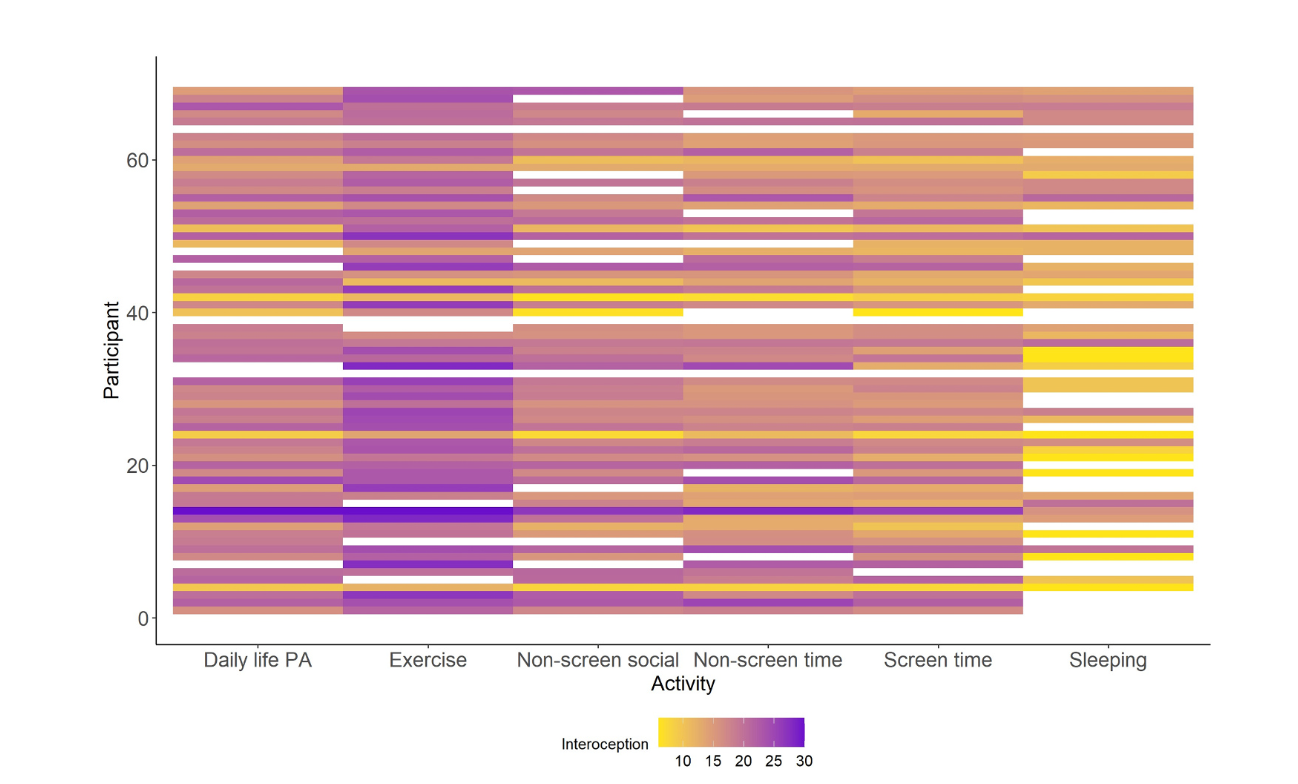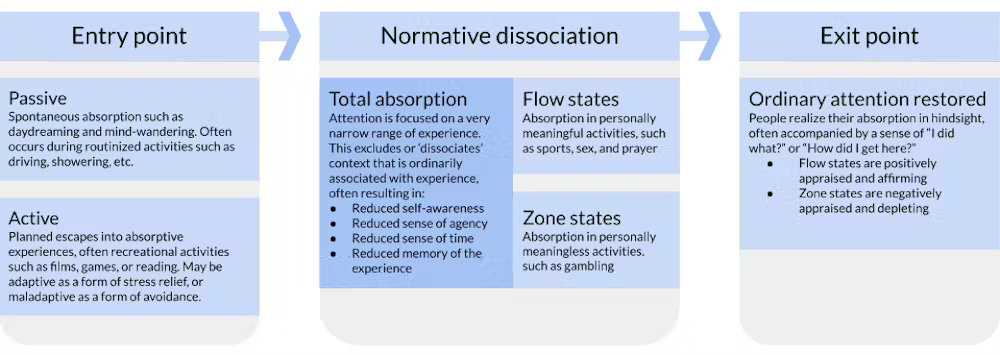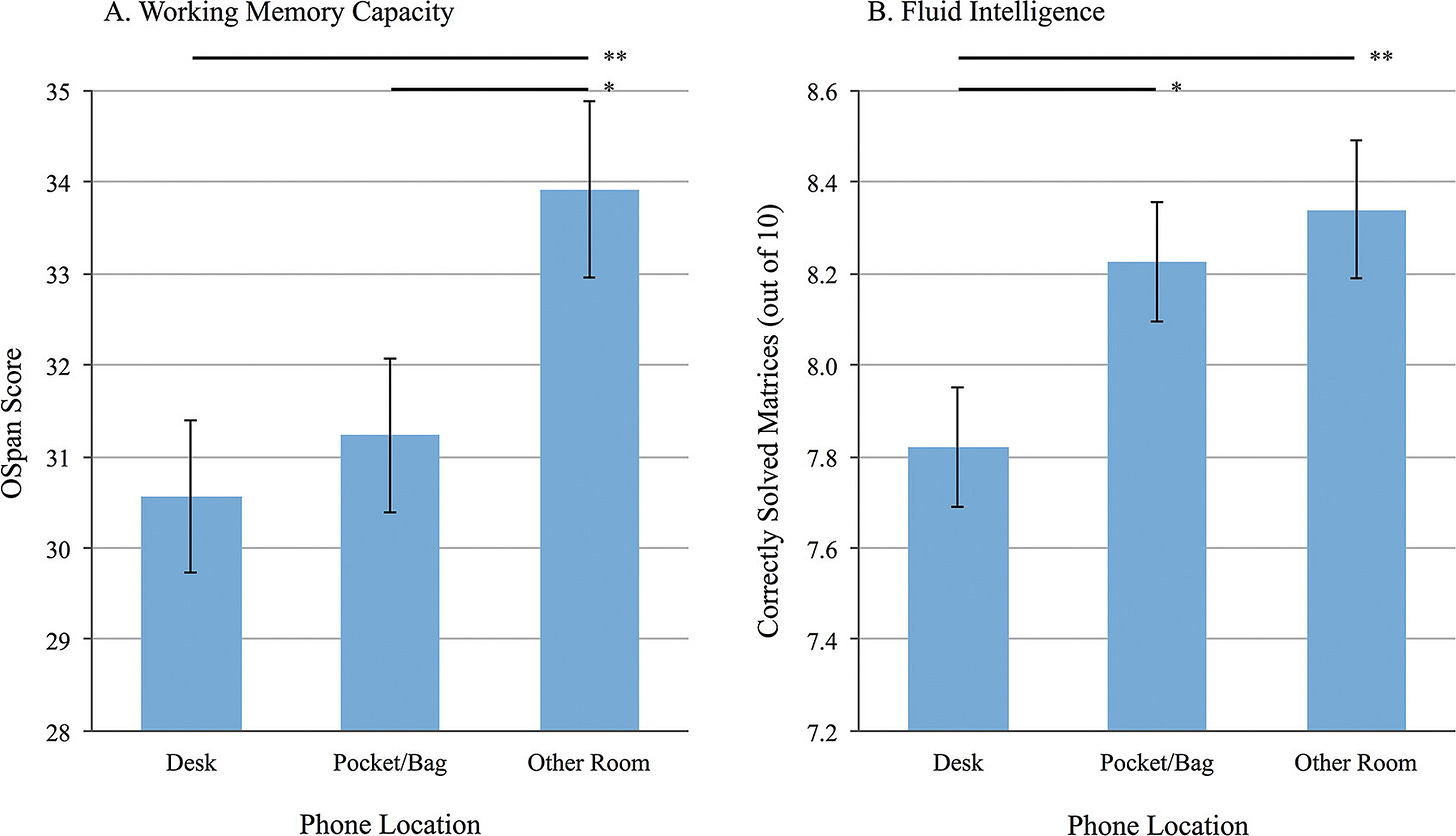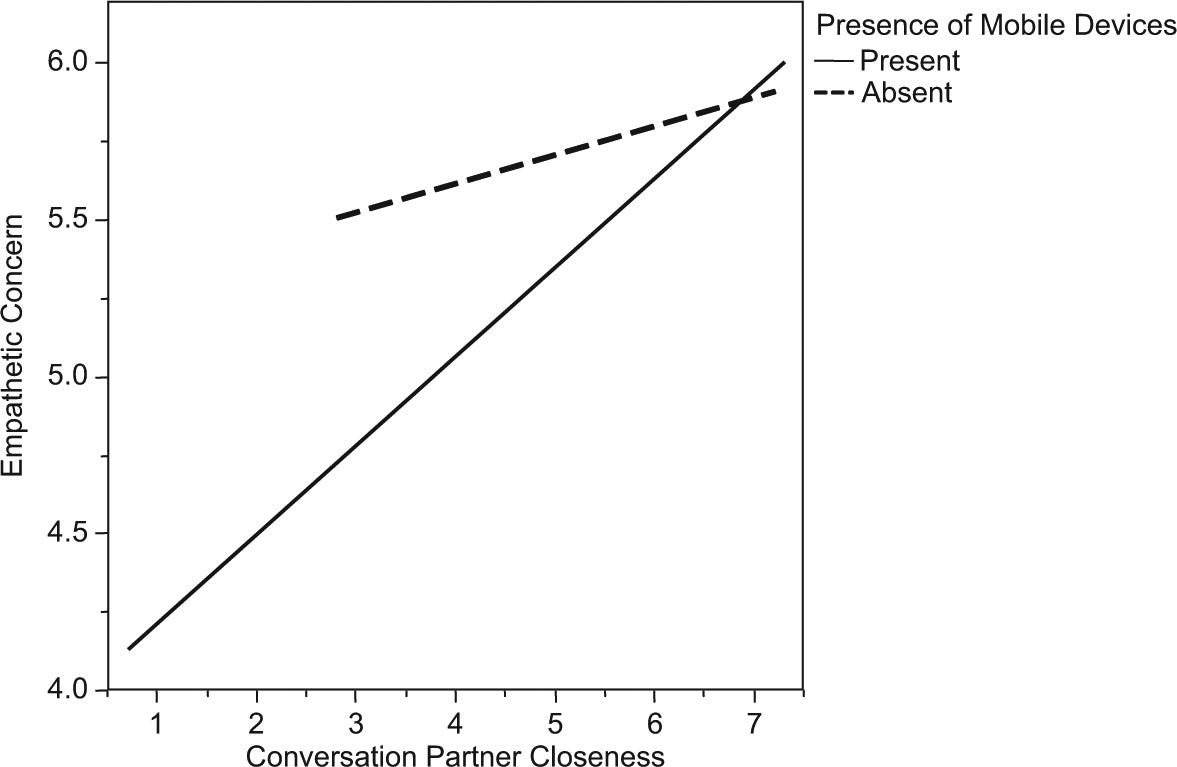Hey everyone. This week’s essay is based on conversations I’ve had with friends, new insights from my doctoral research and the current zeitgeist (aka brain rot). It’ll be a quick one because it’s February 58th and nobody wants to read text-only emails right now.
After watching Apple Cider Vinegar, I do want to reiterate that this newsletter does not contain medical advice. I enjoy reading scientific publications and sharing my somewhat contentious opinion on it. I’m simply exploring and taking you along for the ride. Stay smart.
In today’s letter:
Your phone takes you to another dimension
Leaving your phone on your desk makes you (temporarily) dumber
Your phone decreases your empathy for the friends you’re chatting with
Your phone hijacks your hands, disabling an entire (internal) language (below paywall)
Your phone blocks essential human-nature interaction (below paywall)
A strategy for undoing all of the above. (below paywall)
The consequences of having a smartphone.
Your phone takes you to another dimension.
Zoning out on your phone might seem pretty relaxing, but apparently it’s not as innocent as it seems. It’s an actual sign of your mind entering an altered state of consciousness, one that feels like being suspended in space-time. As you spend more time in your ‘digital mind’, you start to feel dissociated, which is the opposite of feeling grounded and also categorised as a mental health issue. Not only does this kind of time spent deplete us, we are wired to believe it was a negative use of said time. I think it comes down to: how long can I use my phone before dissociating, and, am I entering a flow state or a zone state?

Screen time is associated with lower interoception levels, which means that during screen time you are less aware of the way your body feels. More importantly, screen time negatively affects our interoception, which is our ability to feel and sense what is happening inside our bodies. Experiments and research have shown that traders with better interoception make more money than traders with bad interoception. But aside from financial success, interoception puts us in contact with our emotions, enabling us to correctly label, feel and regulate our feelings. Pretty important.
Leaving your phone on your desk makes you (temporarily) dumber.
It doesn’t matter if you’re ignoring your phone, whether it’s on DND or silent, whether the screen is facing up or down, whether it’s in your bag or on your desk. When your phone is simply in the same room as you, your cognitive capacity and working memory both significantly drop in performance. You become temporarily less intelligent.
Despite the popularity of brain rot, we should understand the biology behind this because it isn’t our fault. Human beings were built to scan. We automatically and subconsciously scan our environment, scan the movements of people, scan for novelties with our brains and bodies in an effort to maintain a state of internal balance. This continuous flow and interpretation of data happens much faster than our conscious brain can comprehend or direct. So when our phones are near, we are either actively allocating cognitive resources to interacting with it, or, we are passively allocating cognitive resources to ignoring it. We can’t win either way. This interesting research shows a similar effect to how we react to both unexpected sounds and unexpected silence. Keep your phone in another room while you’re working.
Your phone decreases your empathy for the friends you’re chatting with.
Being a smartphone owner makes you susceptible to a phenomenon called absent presence, which is basically a kind of split awareness. You are physically and perceptually present where you are, but you are also involuntarily allocating cognitive resources to being digitally alert at the same time. This contributes to micro-social fragmentation and horizontal relationships: our attention is with everyone, all the time, but not necessarily deeply anywhere. This fragmentation can cause superficial presence, less empathy and less satisfaction with our friendships. We are both on the giving and the receiving end of this dynamic!






